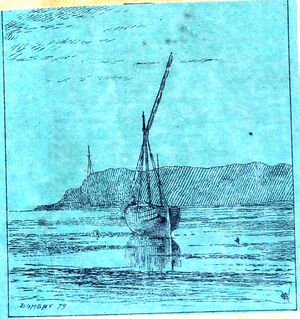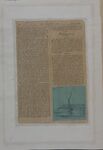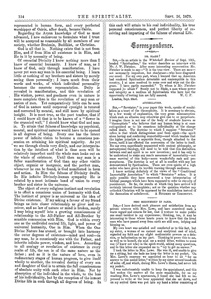< What May Be Known Of God (continued from page 10-61) >
represented in human form, and every perfected Worshipper of Osiris, after death, became Osiris.
Regarding the Aryan knowledge of God as most advanced, I now endeavour to formulate what I trust will be accepted as reasonable by all members of our society, whether Brahmin, Buddhist, or Christian.
God is all that is. Nothing exists that is not from Him, and if from Him all existence is in Him, and He in it by necessity of being.
Of essential Divinity I know nothing more than I know of essential humanity. I know of man, as I know of God, only through manifestation. I have never yet seen any man in his essential being. I learn little or nothing of my brothers and sisters by merely seeing them personally; I learn much from their words and works, of which individual personality becomes the concrete representation. Deity is revealed in manifestation, and this revelation of His wisdom, power, and goodness even in nature is more complete than is the revelation of any man or nation of men. Yet comparatively little can be seen of God in nature until corporeal eyesight is tutored and corrected by mental, and still more by spiritual insight. It is most true, as the poet teaches, that if I could know all that is to be known of a “flower in the crannied wall,” I should know what God and man is. To attain that fulness of knowledge my psychical, mental, and spiritual natures would have to be opened in all degrees of. being. Everyone has the latent power of infinite vision to become a conscious possession on attaining his spiritual majority. As yet we sec through clouds very dimly, and our interpretation by the intellect of what is thus seen will be relatively imperfect until the whole man looks out on the whole of existence. Until then any man is a fuller manifestation of God than any other visible object, organic or inorganic, and the perfect man, whenever he can be found, is God manifested in form and action. In Him the fulness of Divinity dwells. In His infinite Divinely-human sympathy He is related by a most intimate bond of union to every brother and sister in the universe.
The object of every religious instinct and revelation is to effect a conscious union of humanity with God. The instinct of prayer is as universal as the idea of Divine existence. If my asking a favour of my friend brings us into closer relationship as giver and receiver, and no law of nature or mind is broken, surely I may bring myself into a growing consciousness of relationship to the All-Father and All-Brother by sensible communion with Him. God is within every one as the undivided central life, light, and power of universal humanity, One in Him. When the One Divine Nature has atoned, or brought into harmony the outer degrees of existence—mind and soul—in any man, he is consciously one with the Father, and inherits infinite power, wisdom, and love. According to all analogy or revelation of existence in every realm of life, the son is of the same nature as the father; and as it is the nature of love, even in rudimentary stages of human progress, to give itself wholly to another, the revealed destiny of every son and daughter of God is to attain the full consciousness of absolute unity with each, other in Him. Not by absorption of the individual in the whole, to the loss of his individuality, but by the reception of the inmost Divine life in each through all degrees of being. In this each will attain to his real individuality, his true personal consciousness, and perfect liberty of receiving and imparting of the fulness of eternal Life.
Dr. Slade?
Sir,—In an article in the Whitehall Review of Sept. 13th, headed “' Spiritualism,” the writer describes an interview with Mr. J. W. Fletcher. After some interesting conversation Mi-. Fletcher is made to say—“It is the true view. There are men— not necessarily impostors, but charlatans—who have disgraced our creed. For my own part, when I learned that an American had rendered Spiritualism detestable and contemptible in this country, I at once resolved to come over and wipe out the disgrace. I have partly succeeded.” To whom is Mr. Fletcher supposed to allude? Surely not to Slade, a man whose power and integrity as a medium all Spiritualists who have had the opportunity of testing him are fully assured.
London, Sept. 22nd.
Annihilation
Sir,—“Scrutator,” in your paper this week, speaks of annihilation as a tenet of the theosophists. It is necessary to obviate, by a few words of explanation, the very gross misconception which such an allusion may otherwise give rise to or perpetuate. I imagine there is not one of the body of students known as “theosophists” who believes that any human being is at once extinguished as to his conscious individuality at the change called death. The doctrine to which I suppose “Scrutator” refers is that which distinguishes soul from spirit—the spirit alone having and conferring immortality—and which teaches that the higher principle is separable from, though attached to the lower, until it has effected the conversion of the latter to itself. No one even superficially acquainted with ancient philosophy, or metaphysical theology, will need to be told that this distinction between soul and spirit is no new invention; and it has only to be understood to make any man’s assurance of immortality—not mere survival of this body—seem wonderfully rash and presumptuous. The doctrine is not at all in conflict, with any fact demonstrated by Spiritualism. There are even spirits of a high order who have given its terrible warning through mediums.
I know nothing definitely of the views of the “Conditional Immortality Association” to which “Scrutator” refers. It is quite possible they have recovered a true interpretation of biblical passages which have been supposed to refer to eternity of punishment. So far, the results at which they have arrived will certainly interest theosophists; not so the question whether any orthodox Christian will be appeased by the annihilation instead of the damnation of unbelievers.

Editor's notes
Sources
-
London Spiritualist, No. 370, September 26, 1879, p. 154


